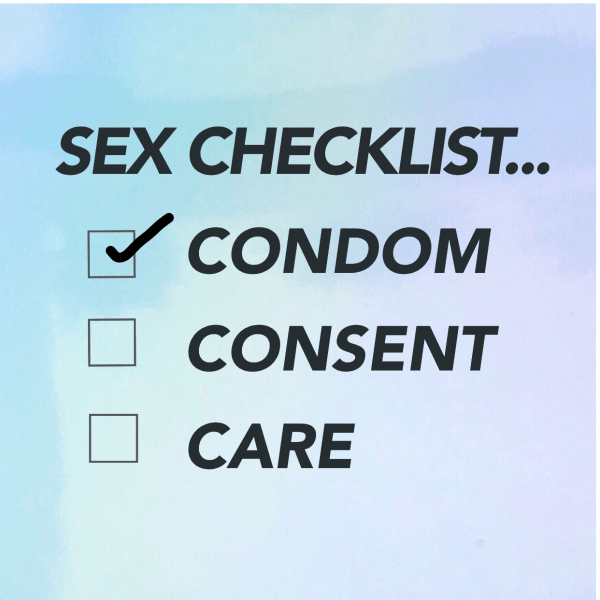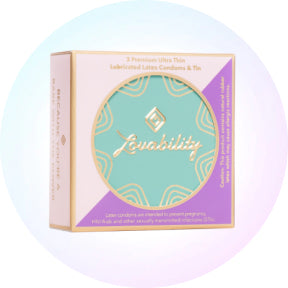Babe With The Power — Birth Control
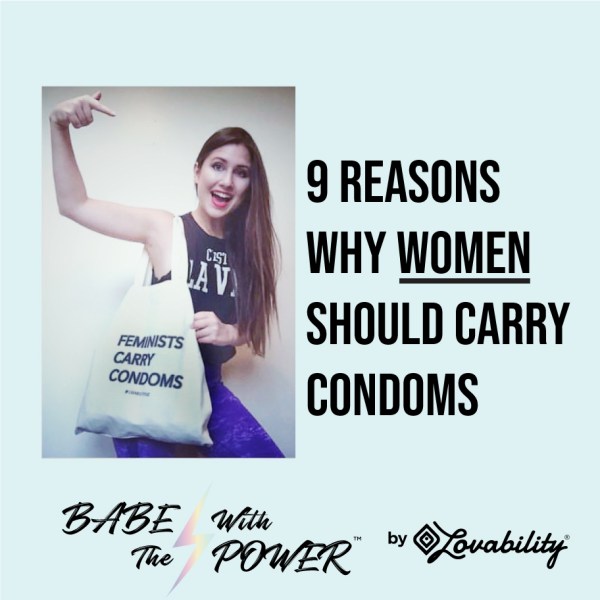
Why WOMEN Should Carry Condoms
Ladies, it is time to lean into your sex life and take the protection power into your own hands. Not convinced? Here are 9 reasons why women should carry condoms.

The Strange & Wonderful History of Condoms
The history of condoms is long and storied, with pretty much everything you can imagine used to prevent pregnancy and disease. The twist is that condoms have always been as much of an issue for women as men. Yes, ladies - you're meant to carry condoms!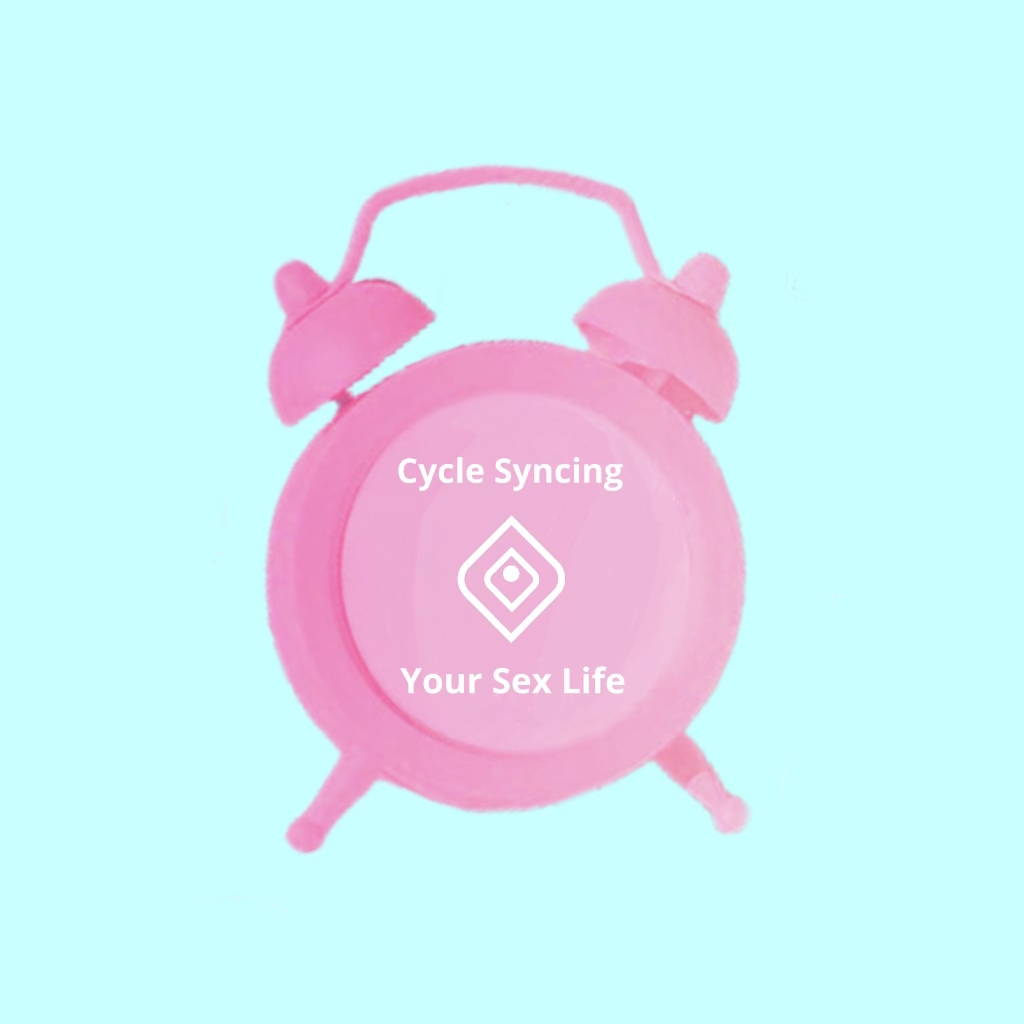
Cycle Syncing Your Sex Life: How Your Period Influences Arousal, Desire And More
Cycle syncing tailors your lifestyle around the 4 natural phases of your menstrual cycle to work with your body rather than against it. Understanding how your hormones affect your physical health, emotions, and energy allows you to make the most out of each phase.
How To Access Every Kind Of Birth Control On Campus
Between internships, classes, and making all sorts of grandiose decisions about your future, babies are probably the last thing you have on the brain. But if you’re sexually active (and not trying to become a parent anytime soon), then birth control should definitely be on your radar.
Though it feels like your campus health center is only equipped to handle the occasional cold or flu, they can actually hook you up with some pretty sweet birth control options, too. And whether they advertise it, many colleges offer free or low-cost birth control to students—even if you don't have insurance.

So if you’re sexually active or think you might want to be, consider this your birth control roadmap, guiding you to all the resources you need to make informed decisions about your sexual health.
Contraceptives Do Not Prevent STIs
Before we dive in, remember that contraceptives are designed to keep an unwanted pregnancy at bay but they will not protect you from STIs. Condoms are the only form of birth control that reduce the risk of pregnancy and STIs. And while condoms are highly effective at protecting against most STIs (such as chlamydia and gonorrhea), they do not protect you from all STIs (for example, herpes, genital warts, and syphilis can spread from skin-to-skin contact). So wrap it up, babe, and get familiar with how to protect against, test for, and treat STIs.
Types Of Birth Control (And How To Find It)
The landscape of birth control has changed a lot in recent years, with new choices becoming available and old favorites becoming easier to access. But as much as science has advanced the birth control buffet, one v-serious caveat remains: no method is 100% effective.
Risk of pregnancy and STIs can never be completely eliminated when it comes to sex. But using birth control can help reduce the likelihood.
There are dozens of contraceptives out there, but they tend to fall into two camps:
- Hormonal: Methods that rely on shifting your hormones to prevent pregnancy.
- Non-Hormonal: Methods that physically block sperm from getting to your eggs.
The kind of birth control you ultimately choose is a very personal decision, and there are pros and cons to each method. All will require a prescription from a doctor, which you can visit at:
- Your campus health center
- A free or low-cost clinic like Planned Parenthood
- Your primary care physician or your OBGYN, if you have one
- Online via a virtual birth control service like Nurx.
Hormonal Birth Control
This kind of contraceptive uses synthetically made hormones to prevent your ovaries from releasing eggs. Different methods do this in different ways, but no eggs = no pregnancy.
While hormonal birth control is pretty effective at keeping that bun out of the oven, it doesn't protect against STIs, and it does come with a lot of unfortunately unpredictable side effects.

Some people feel totally fine, watch their stubborn acne clear up, and enjoy cramp-free periods. Others have to deal with totally unpredictable mood swings, weight fluctuations, and real nasty breakouts. You never know how your body will react to synthetic hormones until you try them.
1. The Pill
Birth control pills are probably the most popular form of hormonal birth control, and for good reason. They're 99% effective in preventing pregnancy—if you use them perfectly.
Because accidentally forgetting your BC pills in your dorm room when you leave for Spring Break is wayyyy too easy, in reality, the pill is more like 91% effective, which is still pretty good.
Pros
- Cheap. The pill can cost anywhere from$0 to $50, depending on your insurance. And if you don’t have insurance, many health centers offer sliding-scale payment options, so you only pay what you can afford.
- Effective. Even if you're prone to forgetting a pill every now and then, it's still over 90% effective.
- Possibly wonderful side effects. Some people report skin clearing, bloat-reducing, and period-regulating benefits from the pill.
Cons
- Possible side effects from hell. Moodiness, weight fluctuations, unpredictable bleeds—the list goes on. Some people's bodies are more sensitive to synthetic hormones than others.
- Easy to forget. Not great for people who are REALLY bad at forgetting to take medicine regularly.
2. The Patch
Not a fan of taking pills? Meet the patch, a small, beige adhesive that you stick on your skin like a Band-Aid. It releases a steady stream of synthetic hormones into your system, just like the pill. Only instead of taking it every day, you leave it on for a week at a time, then replace it with a new one.
The patch is99% effective if—BIG if—you remember to change your patch weekly and make sure it's on correctly.
Pros
- Less terrifying side effects. Nausea and headaches are common, but they don't happen to everyone and usually resolve themselves in at least three months.
- Less frequent reminders. No daily or even weekly pill to take. You just have to remember to change your patch once a week.
Cons
- Not great for water-lovers. Because it can easily fall off in the water, it's not an ideal method for regular swimmers. Some brands of the patch can be used to skip your period altogether.
- More expensive. The patch is a little pricier, ranging from $0 to $150 depending on insurance. Most insurance plans provide the patch for free, but you still need a prescription from a doctor.
3. The Ring
The ring is a small, bendy plastic ring that you insert into your vagina. Once it's in there, it releases a low dose of hormones every day to prevent pregnancy. That's right, friend—no daily or weekly reminders needed.
Currently, two birth control rings exist:
- NuvaRing: which lasts up to five weeks and can be used to safely skip your visit with Auntie Flo.
- Annovera: which lasts for a whole freakin' year—but you have to take it out every three weeks for seven days so Auntie Flo can come to town.
Pros
- Super-effective. The ring is 99% effective when used perfectly (notice a pattern here?) and 91% effective if you forget to take it out every once in a while.
- Less maintenance. You get to worry about your birth control even LESS with only monthly reminders, depending on which ring you choose.
Cons
- Need time to get used to it. Side effects are still possible, and your body may take a few months to adjust.
- Expensive. It also teeters on the very expensive side, costing up to $2,200 for the Annovera. NuvaRing is more in the $200 range, and some are totally free with insurance.
4. The Shot
The Shot (a.k.a Depo-Provera) is a once-every-three-months injection of a synthetic hormone that thickens the cervical mucus to prevent pregnancy. What makes the shot a real star—other than the fact that you can put your BC on a quarterly rotation—is its effectiveness.
Even factoring in people who forget to take their shots on time, the shot is still about 94% effective (and 99% effective when used perfectly).
Pros
- It's uber-convenient (not to mention private). You only have to think about it four times a year, and because it's done in the privacy of a doctor's office, there's no hard evidence that you're on birth control for anyone to find.
- You don't have to worry about messing up. Because the shot is given to you by a professional, there's no way to screw it up.
- You'll get your period less often (and after a year, maybe never). And they'll be much lighter when you do get them.
- It has other health benefits. Beyond preventing pregnancy, the shot can also protect you from uterine cancer and ectopic pregnancies.
Cons
- Some not-so-great side effects. Most have to do with your period, like spotting and bleeding for longer, but some people also experience weight gain, headaches, and even depression.
- You have to wait 10 months to get pregnant after stopping. When and if you are ready to have kids, you'll have to wait a while after your last shot before trying to conceive.
- It's expensive. Some health insurance covers it for free, but if not, it can be up to $250 per shot.
5. The Implant
We've arrived at the level of get-it-and-forget-it birth control babes. The implant is a small rod (about the size of a matchstick) that's inserted under the skin of your upper arm. It releases progestin, which thickens the cervical mucus and prevents ovulation, for up to five, yes FIVE, freakin' years.
Can I get a hallelujah?

Because there is literally no room for user error, the implant is about 99% effective—the most foolproof method on this list.
Pros
- It's long-acting and low-maintenance. You get it once and don't have to worry about it for years.
- Respects your privacy (and your time). No condom wrappers or birth control pill packets to hide away—and no monthly reminders to help you forget.
- Your period may become lighter or disappear altogether. Bonus!
Cons
- More doctor visits. It has to be inserted and removed by a professional (ouch).
- You may start spotting. Irregular bleeding is suuuuper common within the first year, as are headaches, nausea, and breast pain,
- It's pricey. Getting the implant can cost up to $1,300, and removing it is around $300. BUT most insurance lowers the cost—or covers it completely.
Pros
- It's a backup for your backup. If you miss a birth control pill, you can make sure you’re always covered.
- The one-time cost is relatively inexpensive. ECs with levonorgestrel cost around $40, while pills with ulipristal acetate are a little pricier at $50.
- It's super convenient to grab when you're in a pinch. Just make a quick appointment with your doc or swing by the store.
Cons
- It doesn't prevent pregnancy as well as other contraceptives. EC is not a replacement for every day pregnancy prevention.
- You may experience some not-so-fun side effects. Spotting or nausea is temporary but common.
- It may not work for everyone. Levonorgestrel pills are less effective if you weigh over 165 pounds, and ulipristal acetate pills are less effective if you weigh over 195 pounds.
Non-Hormonal Birth Control
Now, if you're wary of putting any more hormones into your body than you have to, there are a couple of non-hormonal methods available to you. They just may require a little more vigilance on your part.
1. Barrier Methods
Most barrier methods work by physically blocking sperm from getting to the egg. They're popular because they can be used on demand (no need to plan ahead), and they don't have any hormones. You can grab most of these for free or at super low cost at your campus health center.
Barrier methods include:
- Condoms: They come in male and female/internal varieties, and you can often find them for free at your local campus health center. Just remember: condoms are only effective when used correctly, so make sure you know how to put them on (and take them off) before things get heated. And yes, condoms reduce the risk of both pregnancy and STIs.
- Diaphragms: This domed cup is inserted into the vagina before sex and covers the cervix to prevent sperm from getting through.
- Spermicide: This is a chemical that kills sperm on contact. It comes in foam, film, gel, suppositories, and creams, and you can find it over the counter at your local drugstore. Spermicide must be used with another barrier method to be effective. Just don't use it with the sponge as that already contains a spermicide.
- Sponge: The sponge is a small, disk-shaped piece of soft plastic with a spermicide in it. It's inserted into the vagina before sex and blocks sperm from getting to the egg. You can find it over the counter at your local drug store or online.
- Cervical cap: Like the diaphragm, this small cup is inserted into the vagina to cover the cervix and block sperm from reaching the egg. It needs to be used with spermicide, and it must be fitted by a healthcare professional.
Because they require some attention before, during and after sex, barrier methods are not quite as reliable as hormonal birth control options. If you choose to use barrier methods, understand that there's still a risk of pregnancy - and only condoms reduce the risk of transmitting STIs.
2. The Copper IUD
As it turns out, synthetic hormones aren't the only route to (more effective) pregnancy prevention. IUDs (or intrauterine devices) are small, T-shaped pieces of soft, flexible plastic that are inserted into the uterus and wrapped in copper.
Here's some weird science for ya: copper is toxic to sperm. So when you get a copper IUD, you can enjoy a whopping 99% effective rate for up to 12 years.

Outside of the copper armor, there are some hormonal IUD options. They work by releasing a small amount of progestin (a synthetic hormone) into your body, which thickens the cervical mucus to block sperm. They're just as effective as their copper-wielding counterparts, except they only last from 3 to 7 years, depending on which brand you get.
3. Fertility Awareness
And finally, we've come to the most "au naturel" of the birth control methods: fertility awareness.
Rather than implanting or inserting anything, you simply track your ovulation via basal body temperature and cervical mucus (usually using an app designed for FAM) to determine when you're most likely to get pregnant. When your most fertile days arrive, you either use a barrier method or avoid getting frisky altogether.
The most important thing to keep in mind is that FAM is about 76 to 88% effective. This is mostly due to human error (we're forgetful, sometimes messy creatures), so if you're looking for something with a higher success rate, this may not be the best method for you.
Choosing The Right Birth Control For You
The actual process of choosing birth control can feel kind of like a dark, mysterious labyrinth. And navigating that labyrinth is all about getting in tune with what works best for you in this season of life.
Set yourself up for sexual wellness success by being 100% honest about your birth control needs and preferences. Do you want something long-lasting, or are you okay with popping a pill every day? Can you handle remembering to take/change/insert something before sex, or do you need something that's more low-maintenance?
Your answers to these questions will help you zero in on the best contraception option for you and your body.

No method of birth control is perfect—or permanent. So whether you're just starting to have sex or you've been at it for years, make sure you revisit your contraception choices on a regular basis. As your body changes and your life circumstances evolve, so too should your birth control method.
About The Author
Emily Blackwood is a freelance journalist committed to answering the plaguing question of what makes us truly happy. Turns out, it's a lot. Her work has been published in SELF, HuffPost, and YourTango. You can learn more here.
______________________________________________________________
Medical Disclaimer: The information provided here is intended for educational and informative purposes only and is not intended to serve as medical or professional advice. If you have any concerns or questions about your health, you should always consult with a physician or other healthcare professional. e.g. Planned Parenthood, CAPS, etc.

The Difference Between Safe Sex And Safer Sex
How can you make sure you're having the safest (and best) sex possible? Let's break it down—starting with the difference between safe and safer sex.

6 Sex Essentials For The Perfect One Night Planned
Heading out for a much anticipated sex sesh? Not sure whether you have everything you need? Here's our list of the 6 must-have sex essentials so you're always prepared for the perfect One Night Planned.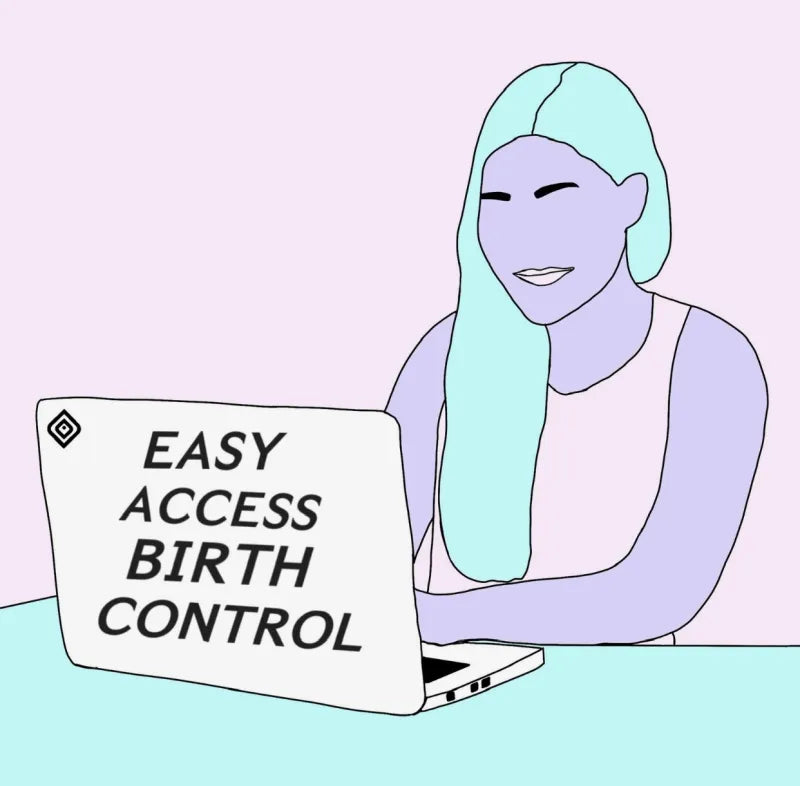
Power Babe Interview | With Dr. Sophia Yen of Pandia Health
For many women, birth control is a great way to avoid pregnancy, heavy periods, acne, anemia, and so much more. In fact, the CDC estimates that over 60% of women aged 15-49 use some kind of contraceptive. While the benefits of birth control are abundant, there are still many barriers for people who want the medication. Many people can’t get birth control methods because of stigmas, lack of insurance, or the price of doctors’ visits.
Dr. Sophia Yen means to change this. She is the co-founder and CEO of Pandia Health, which provides birth control by mail (including free delivery to all 50 states) – along with goodies from other women-owned companies. Pandia Health has a variety of free or affordable options for people with or without insurance.
Continuing our Power Babe series, I’m excited to share with you the conversation I had with this stigma-smashing, affordable health care-providing boss babe.
What does it mean to you to be a Power Babe?
To have Power means the ability to effect change, money, influence. To do good. Babe = we’re all babes. Every woman is beautiful.
Tell us about Pandia Health. What made you want to start it?
Pandia Health was started to make women’s lives better. Pandia is the greek goddess of healing, moon, light. I made up the definition, it was fate! Pan is “every”, dia is “day”. We got you covered every day. Set it and forget it and let Pandia Health worry, so you don’t have to.
I was giving a talk to a bunch of doctors and kept getting asked, “why don’t women take their birth control?” One of the top reasons: they didn’t have it in their hands. They didn’t have time to run to the pharmacy during a proscriptive 7 day interval. If you go on the Saturday or Sunday before you run out, that’s too early. That’s 8-9 days. The insurance will only pay if you come back Monday. Women have #BetterThingsToDo than to run to the pharmacy each month.
Women shouldn’t have to suffer “pill anxiety”- the stress or fear of running out of birth control and having to run to the pharmacy each month. Get #PandiaPeaceOfMind.
I know that some birth control-by-mail companies have run into insurance problems. Have you experienced any legal or insurance issues?
So the beautiful thing is that we are a medical group and a pharmacy. So we are targeted at birth control, but we can do it all. We’re not the birth control company, we are Pandia Health. And our bigger vision is to be the brand that women trust with their health, starting with birth control, but growing with them for their whole uterine, vaginal life. So they’re not going to shut down a doctor’s office, they’re not going to shut down a pharmacy, whereas if we were just birth control, then they could maybe come after us in that situation.
The main kind of limitation is just simply telemedicine. Telemedicine is still kind of the wild, wild west, and different states have different rules. Some of them allow what we do, which is asynchronous telemedicine, but 17 states still don’t allow what we do.
What is asynchronous telemedicine, and what are the benefits?
Asynchronous is, you know, not real time. You just fill out a questionnaire, give us a blood pressure, give us a selfie, and a government ID to prove you are who you are.
Research has shown people are more likely to disclose information on a questionnaire then if I’m looking at you and saying, “How many sexual partners have you had? When was the last time you had sex?” With just a questionnaire, there’s no judgment, I’m just collecting information. And that is really the way medicine should be is no judgment, collecting information.
Why is it important for women to be able to access birth control by mail?
Pandia Health is about care, convenience, and confidentiality. We calculate women spend 10 weeks of their lives, going to the pharmacy, waiting for the drug and coming back home… #betterthingstodo. Birth control should just be delivered straight to you door.
I believe that birth control should be over the counter. And we’re making it even better than over the counter… it just comes in the mail. So it’s about making sure no one runs out of birth control.
It’s about making women’s lives better, and decreasing what I call pill anxiety. So it’s about care, convenience, confidentiality, preventing unplanned pregnancy, dignity, privacy – it’s, I think, it’s just so critical. And there are things we can do on the policy level, which is like allowing a woman to get a year’s supply at a time, and not having an insurance limit.
Who can benefit from accessing birth control online?
Well, certainly any conservative community, any religious community. And then also just people who are using birth control, not for birth control. So we’re trying to expand the view of birth control, that it is a hormonal treatment, and that it can be used for polycystic ovarian syndrome. It can be used for endometriosis for bad, heavy, painful periods, dysmenorrhea, menorrhagia, and there should be no stigma to it.
Can you talk about Pandia Health’s stance on skipping periods?
So I think it’s important that anybody with a uterus bleeding one week out of four knows that you can make #periodsoptional, that you don’t have to bleed every single month. Every time you bleed, you risk endometrial cancer, because you have that growth of the lining. And every time you pop out an egg, you risk ovarian cancer.
Then there’s a colorectal cancer component. 30% of women with their period have some GI effect via diarrhea or constipation. When you’re affecting the GI system, making it run faster or slower, it’s going to have a greater risk of cancer. And now you know, we have 60 plus years of data showing that it decreases all these cancers, there is a slight increased risk of breast cancer, but the decreased risk and all these other cancers outweighs the increased risk in breast cancer.
And then also, for me, the quality of life. The number one cause of anemia is menstruation. The number one cause of missed school and work under the age of 25 is period related pains. And so if we get rid of the period, we increase those of us with uteruses’ productivity.
For more on this, check out Dr. Yen’s Ted Talk.
What has been your proudest moment with Pandia Health?
I love the fact that we have educational content on YouTube, with 260,000 views with no promotion, simply answering for some on birth control. I love that we’re bringing cutting edge, evidence-based medicine and great care to anybody with a uterus on birth control, taking my expertise and the experience of others to decrease side effects in future users and current users.
Do you have any advice for aspiring entrepreneurs?
I think the key for aspiring entrepreneurs is make sure you enjoy what you’re doing. It’s gonna take longer than you think. Four to 10 years, possibly more, and choose your founders wisely because they’re going to be your family. Build your support network, build your network of people who are cheerleading for you. Build your network of people who will help you spread the word. Build your network of people to commiserate with other CEOs who are going through hardships, and build your support group of mentors, people who you can learn from and who you can seek advice, who are way ahead of you, or who are a couple steps ahead of you.
About The Author
A senior at the University of Missouri, Veronica Mohesky is studying Emerging Media Journalism. She is also a sexual health peer educator at her university. She works for local media outlets while in school. She will graduate in December 2020 and hopes to work for a nonprofit or public media outlet. Veronica loves to report on sexual health issues and believes it is important to have conversations to de-stigmatize sex, pleasure and STIs. You can find her on instagram at @veronicamohesky13.

But Which Birth Control Do I Choose???
Check out our handy guide on birth control - pros and cons, effectiveness, and more. Plus, hear personal stories behind what real women had to say about each of the popular birth control methods.
Condoms! Still Not Convinced? Really!?
Condoms. What images does your brain conjure up when you hear the word? Well, your first thoughts of condoms should be of two VERY awesome things: birth control and safe, protected sex.